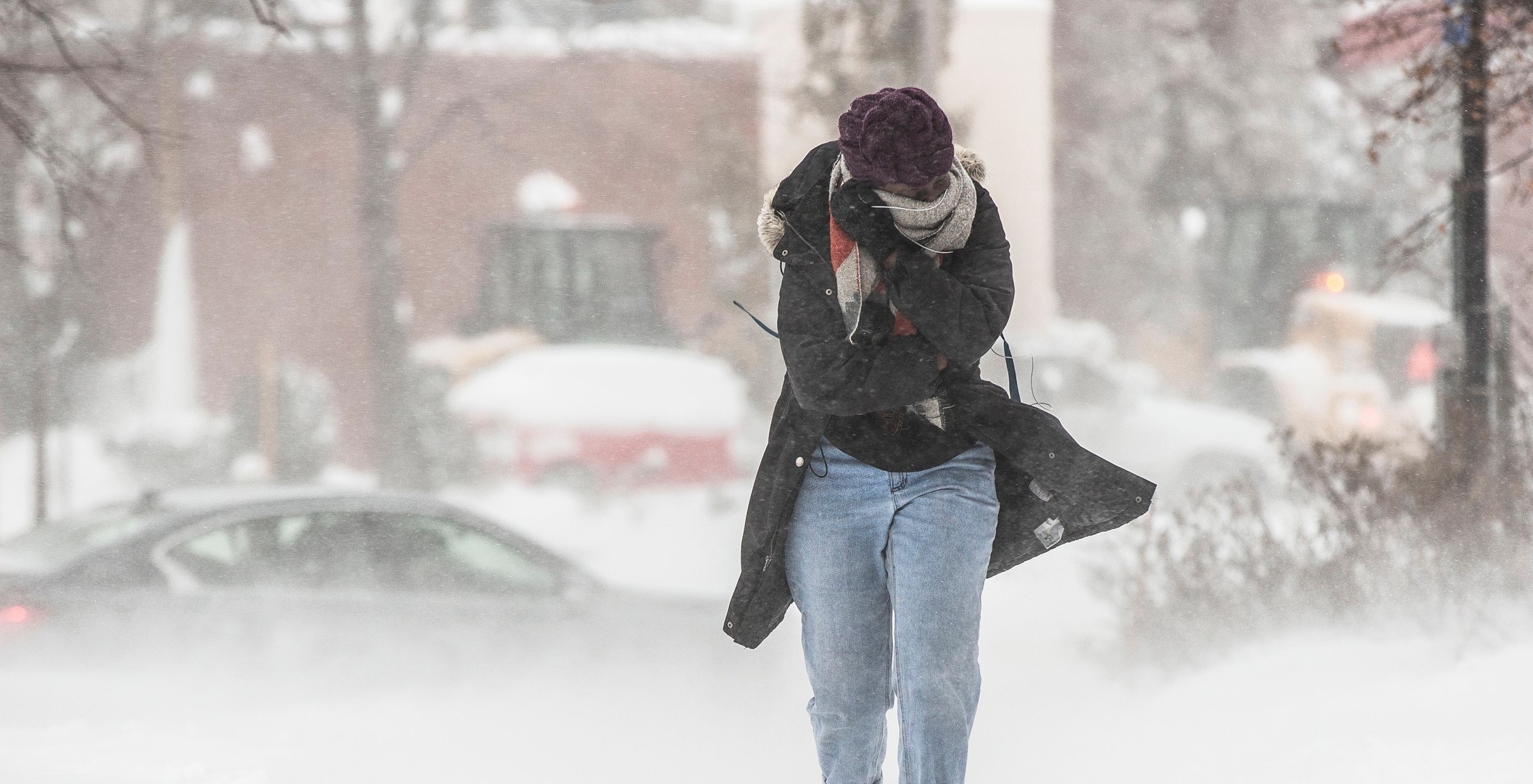While it’s a myth that colder temperatures can cause sicknesses like the common cold or flu, prolonged exposure to freezing temperatures can in fact lead to concerning health hazards such as frostbite, hypothermia and increased risk of heart attacks.
As temperatures across the region begin to dip dangerously low this winter, providers at Carle are warning against the health risks associated with spending too much time exposed to these dangerously low temperatures.
 Amol Naik, MD, Family Medicine, says that it’s important to know how to protect yourself against the elements so you don’t need to visit a medical provider for treatment.
Amol Naik, MD, Family Medicine, says that it’s important to know how to protect yourself against the elements so you don’t need to visit a medical provider for treatment.“Cold weather can place a strain on your body, most importantly your skin and heart,” Dr. Naik said. “When you’re not dressing warm for the elements, your body will try to correct itself by pushing blood to important organs like your lungs and heart. This is why you see a change in the color of your skin on your hands, feet and ears.”
This correction can lead to extra strain on your heart and lead to further complications like a heart attack.
Children and older adults are particular at risk because they may be less aware of the signs and symptoms of these events, specifically frostbit. Those who are diabetic or smokers may also have increased risk.
Dr. Naik reminds patients that if they are going to be outside, you need to be conscious of exposed skin, like fingers, ears, nose and more, while outside.
“It really is shocking how quickly frostbite can settle in,” Dr. Naik said. “You can be shoveling, walking your dog or standing in line in freezing temperatures, and frostbite will begin to set in as little as 20-30 minutes. You may notice grayish-yellow skin, skin that feels waxy or unusually firm, or numbness.”
Wetness is another enemy and can greatly speed up the time it takes for your skin and extremities to start to freeze. Health experts encourage parents to be especially cautious when children are playing in the snow.
But the best advice may just be to stay warm indoors as much as possible, and if you are experiencing redness of the skin from frostbite, do not massage the skin. Use room temperature water to gently warm your hands and increase circulation. If this does not help, visit your primary care provider or the nearest Carle Convenient Care or Convenient Care Plus.
“Home is going to be your warmest and safest place, because frostbite and other weather related health issues shouldn’t be taken lightly,” Dr. Naik said. “Please be attentive to your body, and come see us you suspect something is wrong.”
Dr. Naik offers the following ways to make sure you stay safe in the cold:
- Layer up- it’s often best to wear three thin layers rather than one bulky layer
- Stay out of the wind
- Be sure to stay dry when exposed to cold temperatures
- Take frequent breaks to come inside and warm up
- Avoid alcohol and smoking as they can decrease blood flow in colder temperatures
- Keep gloves, hats, blankets and water in your car in the winter for emergencies
Categories: Staying Healthy
Tags: “convenient, “emergency, “primary, Bloomington-Normal, care”, Champaign-Urbana, Danville, dermatology, Eureka, frostbite, Hoopeston, hypothermia, medicine”, Olney, weather, winter
